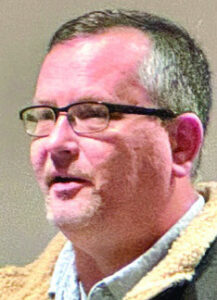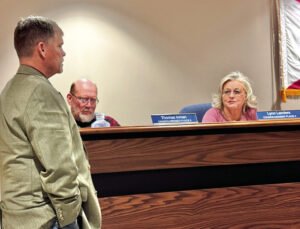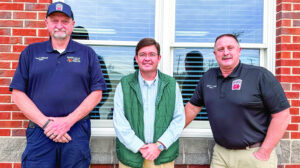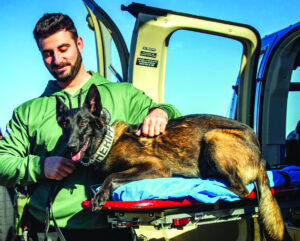Firefighters take precautions as summer temperatures rise
RUSSELLVILLE Firefighters are used to hot temperatures, but summer heat waves make extra precautions necessary while they battle blazes.
Fire Chief Randy Seal said the turnouts — the pants and overcoats firefighters don — have three layers — an outer, fireresistant shell, a middle moisture barrier intended to wick sweat away from the body, and an inner thermal layer.
While made to protect against extreme heat, they also insulate body heat, making the 75 to 100 pounds of safety gear an added source of heat.
“You come outside when you do this in the winter and you get a little relief,” Seal said. “This time of year, you can’t really escape it.”
Donning the gear for just 15 minutes while battling a vehicle fire is enough to leave a firefighter soaked in sweat from head to toe, according to Seal.
He recently experienced the sensation when his department responded to a truck engine fire that did not require “a whole lot of physical activity” or additional tools, which can add another 30 pounds to firefighters’ already heavy gear.
Hydration is critically important to firefighters in the summer. Russellville’s Station 2 has a refrigerator solely stocked with water and electrolytes to help firefighters stay replenished and hydrated.
CONTRIBUTED BY IVY ROSE BALL
“That was after the sun had gone down,” Seal said.
Seal said he must watch his firefighters closely during the summer, bringing in extra help whenever possible and continually stressing the need for hydration.
He said off-duty firemen and volunteers are often called into action to help battle fully involved fires. This allows the rotation of firefighters in and out of close contact with fire and heat, giving them a chance to properly rest and refuel without prolonged exposure to extreme temperatures.
Seal explained that in the heat, firefighters’ breathing apparatus lasts a shorter amount of time, which necessitates frequent rests, too. “The heat element will decrease the amount of activity you can do on the air,” he said. “It causes you to expend more energy, and the more energy you expend, the harder you’re breathing, so you don’t have as much time.”
Seal said local EMS officials attend fire calls in extreme heat to make sure firefighters are protected against heat exposure.
The first responders find a location in the shade where firefighters who have been rotated out of a fire are given cooling towels and hydration options.
“Especially if we’re working a fire in a building, we go ahead and have EMS enroute to standby,” Seal said. “The guys will go to rehab to cool down, have cooling towels put on our necks, address dehydration from losing fluids while fighting the fire and stuff like that.”
Seal stressed the importance of their firefighters staying well-hydrated.
Russellville’s Station 2 even has a refrigerator solely stocked with water and electrolytes to help firefighters stay replenished and hydrated.
“We keep that stocked all through the summer months,” Seal said.
He noted that his firefighters carry plenty of cooling and hydrating items on trucks when they attend events like Fourth of July celebrations, too, because most of the medical-related calls they receive will be events brought on by the heat.
Training and maintenance during a heat wave will also be planned in the morning hours.
“We do train in our gear outside a lot,” Seal said. “It keeps the body acclimated to being in the gear, sweating and all that. But we make sure we don’t tax our personnel a whole lot when they’re on shift in this heat.”







